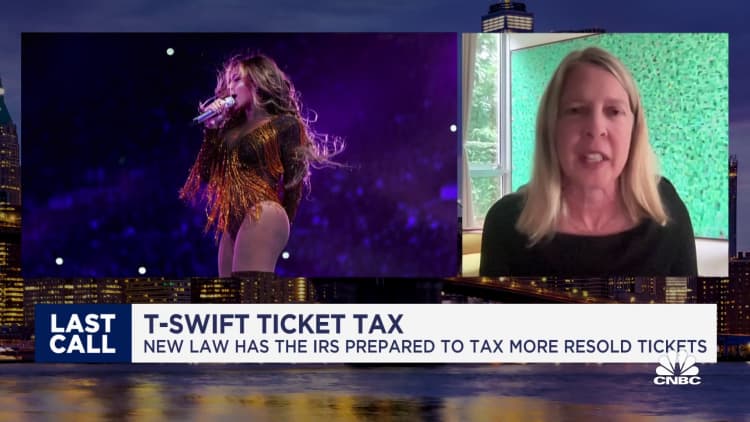Cecilie Arcurs | Getty Images
There’s a staffing shortage in the accounting industry, and it’s not too early to lock in a tax preparer for next season.
If you need someone with specialty expertise, such as the employee retention tax credit or cryptocurrency taxes, it may take longer to find a qualified match. But vetting is always important, experts say.
“Buyer beware,” said April Walker, lead manager for tax practice and ethics with the American Institute of CPAs. “Truly, anybody can call themselves a tax preparer.”
More from Year-End Planning
Here’s a look at more coverage on what to do finance-wise as the end of the year approaches:
The IRS recently unveiled a plan to target “unscrupulous” tax preparers, but there’s currently a low barrier to join the profession, with a basic requirement of registering through the IRS for a preparer tax identification number, or PTIN.
In her 2022 annual report to Congress, National Taxpayer Advocate Erin Collins highlighted the “absence of minimum competency standards for return preparers” as a top problem. When a preparer makes a mistake, the filer is ultimately responsible for their return and can face IRS enforcement action, she wrote.
How to find a mutual ‘good fit’

The first step to finding the right tax preparer is understanding your needs, according to Walker.
For example, the scope of the tax arrangement looks different for W-2 employees compared to a small business owner. There’s also a big difference between preparing a tax return and providing ongoing planning throughout the year.
You can begin the process by asking for referrals from family, friends or colleagues, and interviewing each candidate. “If they’re a good advisor, they want to have a good fit with you also,” Walker said. “They want to develop a relationship that’s ongoing, not just a transactional one.”
Check for tax credentials
While anyone with a PTIN can legally prepare federal tax returns, preparers may have varying levels of education, experience and expertise.
Three types of tax professionals have unlimited representation rights before the IRS: attorneys, certified public accountants and enrolled agents. This means they can represent you on any tax issue, including audits, payment or collections and appeals, according to the IRS. These individuals also have continuing education and ethics requirements.
At a minimum, they should be participating in the IRS’ annual filing season program.
Josh Youngblood
Owner of The Youngblood Group
You can check a CPA’s credentials by searching state boards and you can verify an enrolled agent by emailing the IRS.
However, unlicensed tax professionals can be good, too, according to Josh Youngblood, an enrolled agent and owner of The Youngblood Group, a Dallas-based tax firm.
“At a minimum, they should be participating in the IRS’ annual filing season program,” which requires continuing education and provides limited IRS representation rights, he said. “That at least shows some initiative versus someone who just signed up online and got a PTIN.”
[ad_2]
Source link













